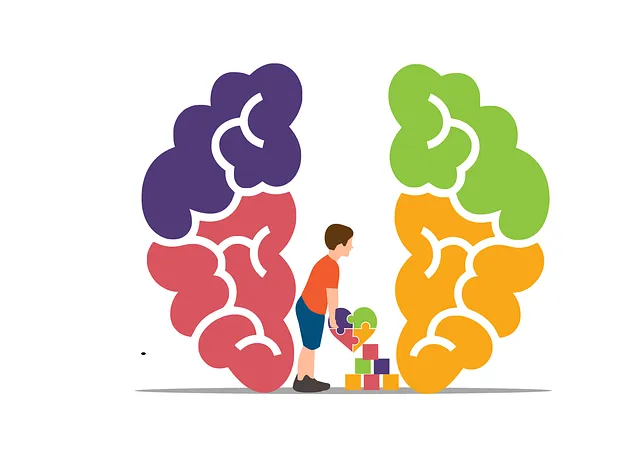Wheat Ridge residents can navigate complex mental health policies and access Kaiser's services for better care. This involves understanding service availability, affordability, and accessibility, along with promoting holistic wellness practices like Mental Wellness Journaling. Advocacy groups break down stigmas and educate the public on providers, ensuring high-quality, sustainable care through evidence-based practices. Kaiser's Community Outreach Program engages local entities to raise awareness and normalize seeking help. Overcoming barriers like financial constraints and stigma requires collaborative efforts, with a focus on accessible, affordable mental health support via Kaiser or other means for all residents.
Mental health policy is a pivotal aspect of ensuring accessible, quality care. This article delves into the intricate world of mental health advocacy and policy analysis, exploring key strategies for positive change. We provide a comprehensive framework, examining various models like the Kaiser approach, to understand how communities can navigate and improve their mental healthcare systems. By discussing challenges and successful initiatives, such as those implemented by Wheat Ridge, we offer insights on advocating for and enhancing mental health services, ultimately aiming to make care more accessible through innovative solutions like the Kaiser Model.
- Understanding Mental Health Policy: A Framework for Analysis
- The Role of Advocacy in Shaping Mental Health Services
- Exploring the Kaiser Model: Accessing Mental Healthcare
- Challenges and Gaps in Mental Health Service Delivery
- Strategies for Effective Mental Health Policy Change: A Wheat Ridge Perspective
Understanding Mental Health Policy: A Framework for Analysis

Understanding Mental Health Policy is akin to navigating a complex labyrinth, but with the right tools and guidance, it becomes manageable. At its core, mental health policy encompasses laws, regulations, and guidelines that shape access to mental health services, treatment modalities, and support systems within a given community or nation. In the case of Wheat Ridge, exploring how to get mental health services through Kaiser offers valuable insights into one such framework. This involves analyzing service availability, affordability, and accessibility, as well as evaluating communication strategies employed by healthcare providers.
Mental wellness, after all, isn’t merely the absence of mental illness but a holistic state of being. Therefore, policy analysis must consider not just treatment, but also preventive measures, including Mental Wellness Journaling Exercise Guidance, to promote resilience and emotional balance. By delving into these aspects, advocates can ensure that policies reflect the diverse needs of individuals seeking support for their mental wellness, ultimately fostering a more inclusive and effective mental health care system.
The Role of Advocacy in Shaping Mental Health Services

Advocacy plays a pivotal role in shaping and improving mental health services, especially when it comes to ensuring accessibility and quality care. It acts as a catalyst for positive change by raising awareness about mental health issues and advocating for policies that support those struggling with their mental well-being. In communities like Wheat Ridge, where understanding and destigmatization are essential, advocacy groups can educate the public on how to access services through providers such as Kaiser. By providing resources and guidance, these advocates help individuals navigate complex systems to receive the necessary treatment.
Moreover, effective advocacy pushes for the implementation of evidence-based practices, including regular risk assessments for mental health professionals, which are crucial in identifying potential risks and promoting self-care routine development. This ensures that care providers can maintain their own mental health while offering support to others. Furthermore, it encourages policies that prioritize access to therapy and counseling, thereby enhancing the overall well-being of the community. Through advocacy, communities can foster an environment where everyone feels empowered to seek help, boosting confidence in managing and improving mental health.
Exploring the Kaiser Model: Accessing Mental Healthcare

The Kaiser Model offers a unique approach to accessing mental healthcare, particularly in areas like Wheat Ridge where ensuring equitable access is crucial. This model emphasizes community-based services and integrated care, making it an innovative strategy for improving mental wellness. By implementing a Community Outreach Program, Kaiser aims to bridge the gap between individuals struggling with their mental health and the support they need. This involves proactive engagement with the community to raise awareness about available resources, including how to get mental health services through Kaiser.
Through this program, dedicated teams work closely with local organizations, schools, and faith groups to develop targeted interventions. They also promote Self-Care Routine Development for Better Mental Health, empowering individuals to take charge of their well-being. This holistic approach ensures that mental healthcare becomes an integral part of community life in Wheat Ridge, fostering a supportive environment where people feel comfortable seeking help when needed.
Challenges and Gaps in Mental Health Service Delivery

Accessing mental health services can be a significant challenge, particularly for individuals in rural or underserved areas like Wheat Ridge. The availability and accessibility of quality care often lag behind urban centers, leading to disparities in treatment. Kaiser’s presence in Wheat Ridge offers a promising solution, but understanding the current gaps is essential for advocacy. Many individuals face barriers such as limited resources, stigma, and lack of awareness about available services.
Effective communication strategies and mental health awareness campaigns are crucial to overcoming these challenges. By promoting positive thinking and open dialogue, communities can encourage individuals to seek help without fear of judgment. Collaboration between healthcare providers, community organizations, and policymakers is vital to bridge the gap and ensure everyone in Wheat Ridge has equal access to essential mental health services through Kaiser or other available resources.
Strategies for Effective Mental Health Policy Change: A Wheat Ridge Perspective

In the pursuit of effective mental health policy change, Wheat Ridge offers a unique perspective by prioritizing accessible and affordable services. One key strategy involves simplifying the process of obtaining mental health support through Kaiser, ensuring that individuals facing challenges like depression prevention and mood management can navigate these services seamlessly. By promoting self-awareness exercises and integrating them into mainstream healthcare, Wheat Ridge aims to empower people to take charge of their mental well-being.
This approach recognizes that fostering resilience and managing emotions are crucial aspects of mental health. Encouraging self-Awareness Exercises doesn’t merely mean seeking professional help; it involves teaching individuals practical techniques to recognize and regulate their emotional states. Such initiatives have the potential to create a ripple effect, leading to more stable moods and improved overall mental health in communities, ultimately reducing the burden on traditional support systems.
Mental health policy analysis and advocacy are indispensable components in ensuring equitable access to quality care. By understanding the framework of mental health policies, advocating for systemic changes, and leveraging models like the Kaiser approach, we can address gaps in service delivery. The Wheat Ridge perspective offers valuable strategies for driving effective policy change, ultimately helping individuals navigate and access mental healthcare more effectively, such as through the Kaiser system, to improve their overall well-being.


